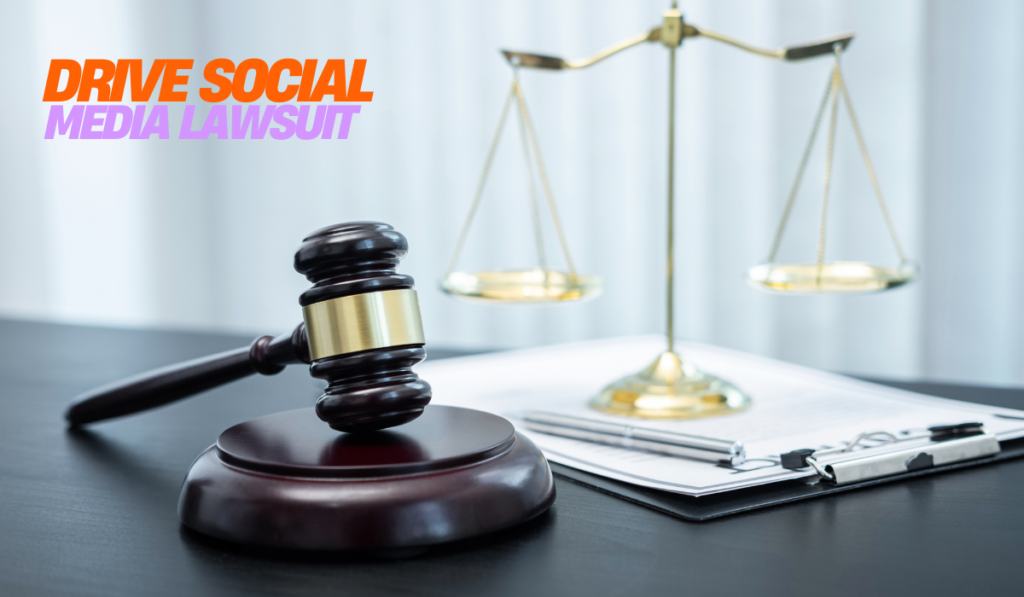The digital marketing world is reeling from the fallout of a landmark legal case: The Drive Social Media Lawsuit. This high-profile litigation, filed against the St. Louis-based agency Drive Social Media, has exposed systemic issues in the industry, from deceptive advertising practices to data manipulation. As the case unfolds, it raises urgent questions about accountability, transparency, and the ethical responsibilities of marketing firms in an era dominated by social media.
Background: The Rise and Fall of a Marketing Giant
Drive Social Media emerged as a leader in digital marketing, offering services like SEO, paid social media campaigns, and content creation. With a clientele spanning small businesses to Fortune 500 companies, the agency positioned itself as an innovator, even partnering with Dressie Law Firm to blend legal compliance with creative strategies. However, its rapid growth masked underlying issues. By 2024, clients began reporting unfulfilled promises, hidden fees, and suspiciously inflated performance metrics—allegations that culminated in a multi-million-dollar lawsuit.
Key Allegations: Deception, Data Manipulation, and Breach of Trust
The lawsuit centers on three critical accusations:
1. Deceptive Advertising and False Promises
Clients allege Drive Social Media guaranteed unrealistic returns on investment (ROI), such as viral reach or exponential sales growth, without evidence to back these claims. One plaintiff claimed the agency promised “500% ROI within three months” but delivered negligible results.
2. Unethical Billing Practices
Hidden fees and charges for undelivered services were rampant. For example, businesses were billed for “premium ad placements” that never materialized, while others faced unexpected costs tied to vague contractual terms.
3. Data Manipulation
The most damning accusation involves falsified analytics. Internal documents revealed that Drive Social Media allegedly altered engagement metrics and click-through rates to make campaigns appear successful. One client discovered their “10,000 monthly leads” were largely bots or inactive accounts.
The Human Cost: Clients, Employees, and Industry Trust
The lawsuit has devastated businesses that relied on Drive’s services. Small enterprises, in particular, faced financial ruin after allocating budgets to ineffective campaigns. A bakery owner in Missouri shared, “We trusted them with our entire marketing budget. Now we’re struggling to keep the lights on”.
Employees within Drive Social Media also reported turmoil. Former staff described a toxic culture where pressure to meet unrealistic targets led to ethical compromises. “We were told to ‘make the numbers work’ no matter what,” one anonymous employee revealed.
Industry-wide, trust in third-party marketing agencies has plummeted. A 2025 survey by Digital Marketing Today found that 68% of businesses are now conducting stricter due diligence before hiring agencies, prioritizing transparency over flashy promises.
Legal and Regulatory Implications
The case could reshape digital marketing regulation:
- Stricter Transparency Laws: Legislators are proposing mandates for agencies to provide verifiable, real-time performance data to clients.
- Federal Trade Commission (FTC) Scrutiny: The FTC is investigating whether Drive’s practices violate Section 5 of the FTC Act, which prohibits “unfair or deceptive acts”.
- Precedent for Future Litigation: Legal experts predict a surge in lawsuits against agencies using similar tactics. “This case is the tip of the iceberg,” said cybersecurity attorney Lisa Nguyen.
The Road Ahead: Rebuilding an Industry
Drive Social Media’s downfall serves as a cautionary tale. To regain trust, the industry must adopt:
- Ethical Audits: Independent reviews of agency practices to ensure compliance with advertising standards.
- Client Empowerment Tools: Platforms allowing clients to directly monitor campaign analytics without agency interference.
- Education Initiatives: Workshops on digital literacy to help businesses identify red flags in marketing contracts.
Conclusion: A Turning Point for Digital Marketing
The Drive Social Media lawsuit is more than a legal battle—it’s a catalyst for change. As the case progresses, its outcomes will likely redefine how marketing agencies operate, emphasizing accountability and ethical practices. For businesses, the lesson is clear: success in the digital age hinges not just on visibility, but on integrity.
FAQs
1. What is the Drive Social Media lawsuit about?
The lawsuit alleges that Drive Social Media, a digital marketing agency, engaged in deceptive advertising, unethical billing practices, and data manipulation. Clients claim the agency promised unrealistic results (e.g., “500% ROI”), charged hidden fees, and falsified campaign metrics using bots or inactive accounts. The case has sparked debates about accountability in digital marketing.
2. How did small businesses specifically suffer from Drive Social Media’s practices?
Many small businesses allocated their entire marketing budgets to Drive Social Media, only to receive fraudulent or ineffective campaigns. For example, a Missouri bakery owner reported struggling to stay afloat after trusting the agency with their funds. The financial losses and broken trust have left some businesses unable to recover.
3. What legal consequences could this case trigger for the marketing industry?
The lawsuit may lead to stricter regulations, including:
- Mandated transparency: Laws requiring agencies to share real-time, verifiable campaign data.
- FTC enforcement: Investigations into violations of consumer protection laws.
- Precedent for future lawsuits: More clients could sue agencies over deceptive practices.
4. What red flags should businesses look for when hiring a marketing agency?
The case highlights warning signs, such as:
- Guarantees of “overnight success” or unrealistically high ROI.
- Vague contracts with hidden fees.
- Lack of access to raw campaign analytics.
- Pressure to sign long-term agreements without performance reviews.
5. How can the digital marketing industry rebuild trust after this scandal?
Experts suggest:
- Third-party ethical audits to verify agency practices.
- Client-facing analytics tools for real-time campaign monitoring.
- Industry-wide education to help businesses identify ethical agencies.
- Prioritizing transparency over “vanity metrics” like follower counts.

